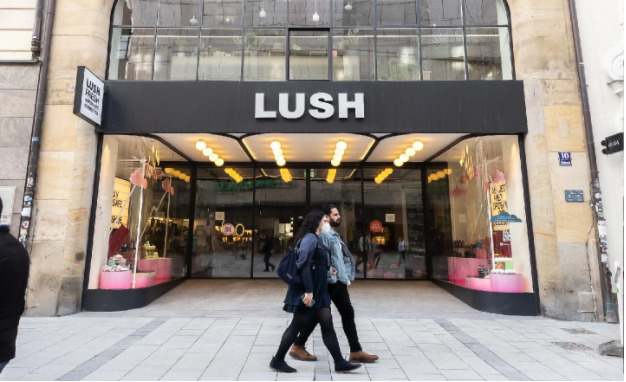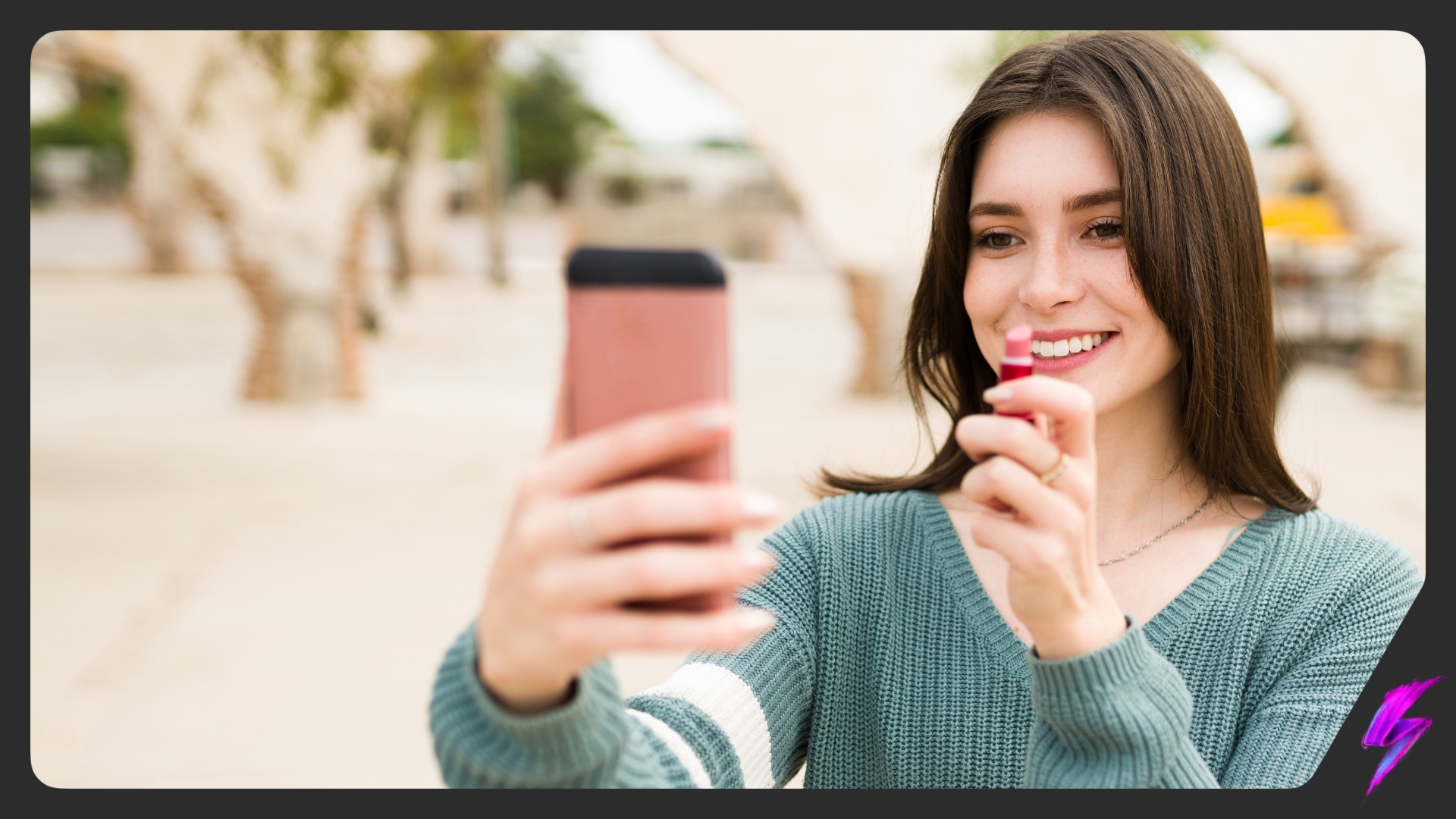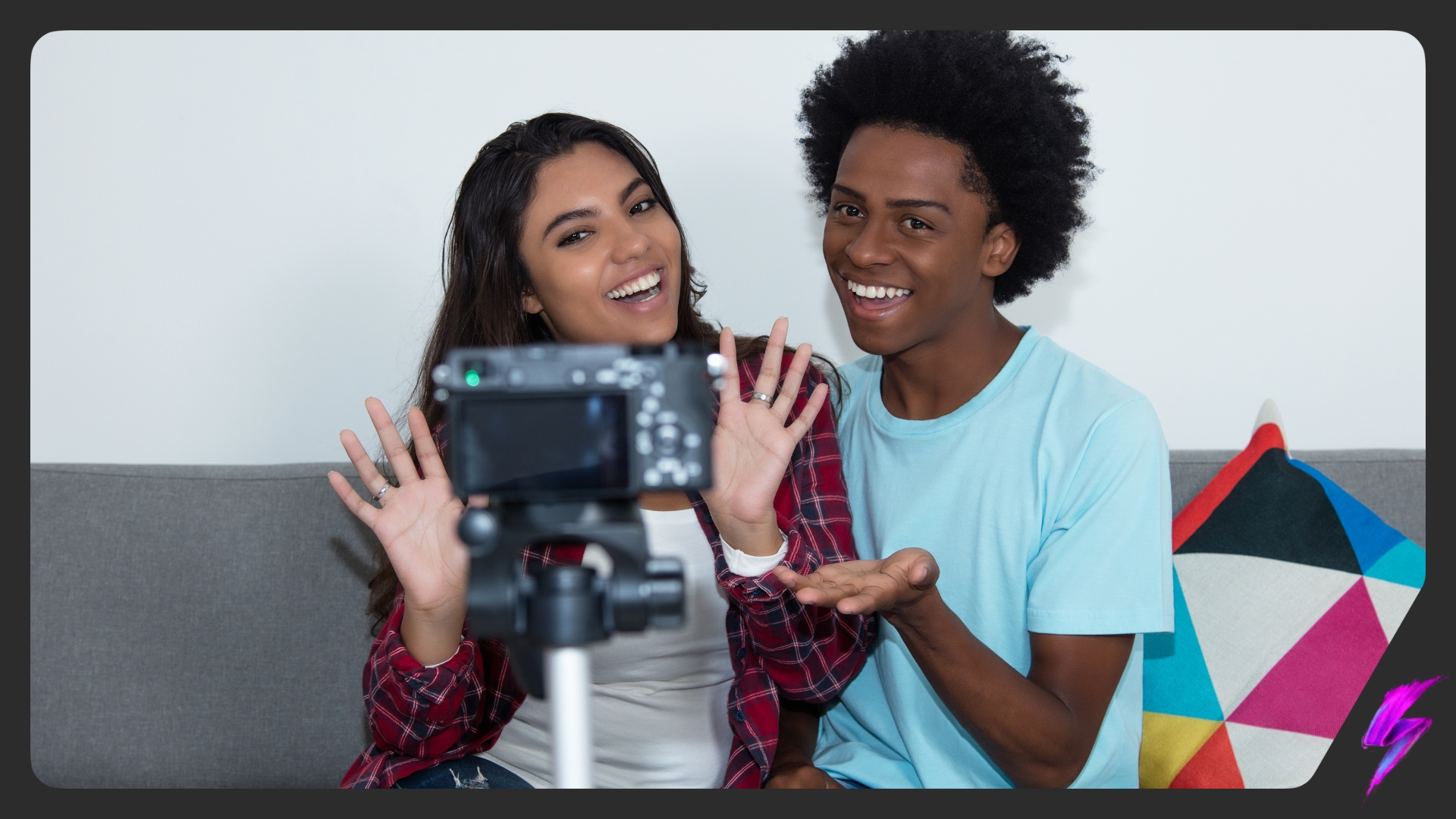The Pros and Cons of Going Dark
Dec 06, 2021
Social Trends

British cosmetics brand Lush has recently announced it will be shutting down its four main social media accounts: Facebook, Instagram, TikTok and Snapchat. The marketing decision titled The Global Anti-Social Media Policy stems from Facebook’s recent Whistleblower and significant issues regarding safety on social media.
It’s impossible to deny the impact social media can have on a brand’s sales, community and reputation. Lush’s Facebook and Instagram followers alone stood at over 10.6 million followers. This huge following equates to around £10 million in lost sales. However, even knowing this, the cosmetics brand still went ahead with it’s anti-social plan.
This isn’t the first time Lush has gone dark on social media. Back in 2019 the brand stopped posting on its UK Instagram and Facebook accounts due to increasing concerns over how much control these huge platforms had on how many people, and which people, saw anything they posted.
Lush also isn’t the only brand to rethink its social media strategy. Throughout 2020 and 2021, many brands (including Bottega Veneta and Balenciaga) began using social media differently or not at all. Bottega Veneta made an exit from social media in January, deciding to launch a quarterly digital magazine called Issue. Balenciaga has begun using social media for ephemeral content—the brand periodically wipes its Instagram feed clean to put a spotlight on its current marketing campaigns.
However, the main difference between Lush and other brands is that the beauty cosmetics brand’s decision is ethically purposeful. The brand is attempting to trade short-term revenues for long-term loyalty. Lush’s chief digital officer Jack Constantine said: “Social media was not designed to look after people’s health, but our products are… it is counter-intuitive for us to use platforms that keep you hyper-tense, engaged and anxious.”
Patagonia made a similar marketing decision in the summer of 2020, and pulled all its ads from Meta-owned platforms as part of an advertiser boycott over concerns of misinformation and hate speech on the platforms. While the ethically conscious clothing company still uses Meta platforms for social media marketing, it does not pay for any ads and is committed to keep this standpoint until Meta priotises people and planet over profit.
Given these various decisions to alter or remove social media marketing, we’ve collated the pros and cons of going dark.
The pros of leaving social media
More investment into other channels
The main benefit of minimising or removing social media marketing from an overall marketing strategy is that it means a brand has more time and budget to invest into other channels. Social media isn’t the only way to connect to customers and new audiences. Brands could invest into email marketing (with a newsletter), create a digital magazine, implement a customer service chatbot to their websites, or even create their own app.
Brands can offer valuable information and experiences to their customers and audiences through alternative channels. While social media does offer a wide reach and fun opportunities—both are limited. Investing into alternative channels can offer the same reach and opportunity ranges as social media, and can create a seamless brand experience for customers.
Claim back ownership of data
When building a community on social media, an often overlooked issue is: who owns customer data? The issue becomes more prevalent as more platforms begin implementing social commerce and in-app shopping experiences. When a customer interacts with a brand ad or makes a purchase through a social platform, this is tracked and monitored by the social platform, not the brand. Therefore, the platform owns the customer data. Some platforms may sell this data to third parties, which could damage the customer’s trust in the brand, or the data could feasibly be used to redirect shoppers to competitors—which includes social platforms as they branch into commerce.
Leaving behind social media means brands can take back ownership of customer data. Customer data is incredibly valuable to brands and offers insight into needs, wants, habits and activities that can guide marketing decisions including channels and campaigns.
Owning customer data also means brands can build a community on their own terms, using means and messaging important and relevant to their customers. This can result in more personalised experiences for customers, increasing brand loyalty. In addition, customers are becoming increasingly wary of social media platforms owning data; removing this increases trust.
Build long-term loyalty
Consumers have become reluctant to trust branded content on social media—this includes owned content and paid ads. Consumers don’t want to feel like they are being marketed to, which is a trap many brands fall into on social media—users are aware that brands are trying to get them to make a purchase. Using alternative channels can bypass this. Coming off social media means brands have to rely on word of mouth marketing, which increases the perceived authenticity of a brand, which can heavily increase brand loyalty.
Leaving social media also means that a brand will face less competition from competitors. Social media is overcrowded and branded messaging often gets lost in social clutter. Due to recommended algorithms and accounts, social media users are often promoted similar brands that are competitors. It’s so easy to find alternative brands on social media—removing this option means there is less variety-seeking from customers. A customer is more likely to become loyal to a brand if they are unable to find competitors easily.
The cons of leaving social media
Disconnect from audience
Social media is one of the most effective communication methods available for both brands and consumers. It’s become a go-to channel for customers to share feedback, praise or criticism, and to research brands—social media is also where many customers go for customer service.
Social media is a simple tool and touchpoint brands can use to reach billions of users. Just because a brand has decided to leave social media, doesn’t mean its customers have. Customers could become frustrated with a brand as a result of having a key and easy communication channel removed—this could lead them to finding an alternative brand to support.
Lost cultural relevance to new generations of shoppers
The new generation of spenders live on social media; it is where they spend the majority of their time. This new generation uses social media to discover, research and engage with brands. By removing social media as a marketing channel, brands are risking losing cultural relevance to these younger generations.
Consumers are drawn to brands that share their values and personality—this includes their online personality. Social media trends change and as they do, brands are given the opportunity to show their audiences they are up-to-date with the latest trends, memes and news. In doing so, they are able to connect with their audiences on a more emotional level, increasing brand loyalty from upcoming big spenders. Connecting with these spenders early gives brands the chance to build loyalty before the consumers are out spending, increasing their chances of being the go-to brand.
Lost revenue
Social media marketing is one of the most influential marketing strategies. It’s one of the most popular and effective routes to drive revenue for businesses. As social media platforms continue to develop their own commerce capabilities, social media itself will become the driving force in revenue. If platforms focus on their Shop features, websites as we know them may become obsolete.
Consumers have the opportunity to use social media as a one-stop-shop. They can discover, research and buy within one location—if needed, they can also request customer service in the same place. Social commerce is expected to increase quickly, especially thanks to the popularity of livestream shopping. By not using social media, brands will be missing out on an incredibly lucrative opportunity that can put them ahead of their competitors.
Should brands go dark?
So, having discussed reasons why brands should and shouldn’t leave social media, what’s the overall recommendation?
While leaving social media offers investment into new channels, data ownership and long-term loyalty, these are all elements that brands can work on anyway. Social media is where consumers live. It is impossible to deny the impact social media can have for brands.
Do social platforms need to adjust their priorities? Yes. Meta owned platforms have come under scrutiny for similar reasons too many times—Lush’s decision to leave to prioritise people over profit makes sense. But, it wouldn’t be necessary if Meta put people’s online safety first. A similar thing can be said for Twitter. The microblogging platform has a bot issue, where fake accounts are spreading misinformation and false news to thousands of people.
While going to the dark side could encourage social media platforms to alter their safety precautions, the ultimate impact comes from social media users. Unfortunately, consumers nowadays are addicted to social media. With algorithms that constantly show tailored content that entertains and engages, social media users are rarely bored online and have no reason to leave.
Many social media users have voiced their concerns for their online data, and yet are more willing than ever to offer their information to social platforms in order to receive more specific recommendations. So, until social media users demand more safety precautions from social platforms, the impact of brands leaving social media behind is limited.
Our Influencer marketing agency and Social agency are located worldwide, with our agency network based in the USA, UK, UAE and China.
If you want to receive our industry insights, visit our Influencer Marketing & Social Media blog.
@ Socially Powerful
[cta]
Popular Blogs
Most Popular Instagram Hashtags | Tiktok Hashtags | Instagram Monetization | Facebook Banner Size | Snapchat Influencers | Most Subscribed Youtubers | Best Time to Post on Youtube | UK Twitch Streamers | Female Twitch Streamers | Popular Tiktok Songs | Male Tiktok Influencers | Lgbtq Tiktok Influencers | The Rise and Fall of Clubhouse | Influencer Marketing on Clubhouse | LiketoKnowit | Pretty Little Thing Instagram| Top Social Marketing Agencies
Social And Influencer Marketing News + Insights
Get in touch
We'll show you how to start powerful conversation, drive social engagement, build your brand, hit sales targets or meet other goals you have, wherever you are in the world.
Work with us





